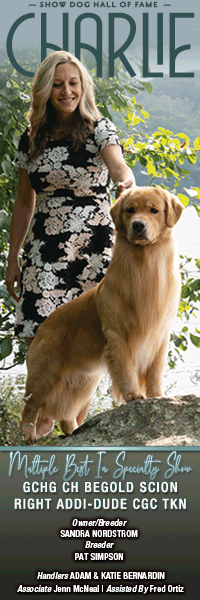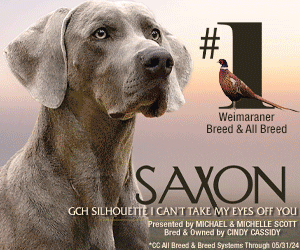Genetic Mutation Found For Rare And Debilitating Disease Affecting Border Collies
 Kennel Club Genetics Centre at the Animal Health Trust makes breakthrough discovery in identifying the genetic mutation responsible for sensory neuropathy
Kennel Club Genetics Centre at the Animal Health Trust makes breakthrough discovery in identifying the genetic mutation responsible for sensory neuropathy
Sensory neuropathy (SN) is a severe neurological disease affecting young Border Collies for which there is no treatment. Affected dogs progressively lose the sensation in their limbs due to the degeneration of sensory and motor nerve cells and have to be euthanised.
The onset of the disease is usually between two and seven months of age and clinical signs include knuckling of the feet, self-mutilation wounds (caused by excessive chewing or licking due to the lack of feeling in the limbs) and a progressive lack of coordination (ataxia).
SN is currently a rare disease but cases have been seen worldwide in the UK, US, Belgium, Japan and Italy and, before a case is seen, it is impossible to know which lines contain carriers.
To help Border Collie owners and breeders combat this debilitating disease The Kennel Club Genetics Centre at the Animal Health Trust has identified the genetic mutation responsible for SN and a DNA test, priced at £48, will be available to order from the AHT DNA Testing Service from Monday 27 April. A Border Collie combination test, testing for SN, trapped neutrophil syndrome and Vitamin B12 deficiency will also be available to order from Monday 27 April at a discounted price of £68 for all three tests.
Dr Oliver Forman, Genetics Researcher at the AHT and lead of the SN investigation, said: “It’s really important for the Border Collie population that we’ve been able to identify the genetic mutation responsible for this debilitating disease and develop a DNA test so quickly.
“Although this is a relatively rare condition, DNA testing offers the chance of eliminating this disease from the breed, and will avoid the risk of it becoming a bigger problem in the future. As the condition is rare it’s impossible to predict which lines contain carriers so DNA testing is the only way to ensure carrier to carrier matings are avoided, which could result in litters containing affected puppies.”
Finding the mutation
Scientists at the AHT have been researching the genetic basis of this disease in the Border Collie since two affected dogs were diagnosed by neurologists in the AHT’s Small Animal Centre, providing DNA samples to begin a genetic investigation. A third DNA sample was provided from the University of Glasgow.
The three samples were compared to the DNA of 170 Border Collies whose DNA has been submitted to the AHT from owners to aid its epilepsy research in the Border Collie. This extensive bank of DNA was crucial in enabling the AHT to identify which chromosome contained the genetic mutation for SN as quickly as possible. Once this was identified the chromosome was sequenced to find the faulty gene responsible for SN.
Once the mutation had been found the AHT worked in collaboration with the University of Glasgow and the University of Missouri to test DNA from a total of 11 affected dogs, all of which were confirmed to have two copies of the mutation identified by scientists at the AHT.
Oliver added: “This break-through discovery shows how the vets and scientists at the AHT are able to work together to investigate health conditions observed in the clinics and to collaborate with other research institutions to further research projects. Our thanks go to everyone involved, it is hoped that fewer dogs will be born with this horrible condition in the future.”
Caroline Kisko, Kennel Club Secretary, said: “We are delighted that the Kennel Club Genetics Centre at the Animal Health Trust has made this breakthrough, which will undoubtedly improve the health of Border Collies by enabling breeders to help eradicate this nasty condition from their breed.
“Scientists at the Kennel Club Genetics Centre at the AHT are making great strides in their work, which goes a long way in improving dog health across the board and we would encourage Border Collie breeders to utilise the new DNA test to help cement the next stage in their breed’s health – eradicating this horrible disease.”
Combined test
To make SN testing easier and more affordable for owners the AHT is offering a combined test for three conditions affecting Border Collies.
Dogs affected by trapped neutrophil syndrome suffer from an impaired immune system due to a reduced number of white blood cells released into the bloodstream and have to be euthanised at a young age. Vitamin B12 deficiency or Imerslund-Gräsbeck Syndrome (IGS), is a treatable disease which affects the blood and nervous system which prevents young dogs from thriving and can make a dog anaemic.
All three conditions require two copies of the faulty gene in order for a dog to be genetically affected. Dogs with one copy of the faulty gene will be asymptomatic carriers and dogs with no copies of the faulty gene are classified as clear.
Oliver said: “Although all of these conditions are relatively rare, when we ran the three tests on a random selection of DNA samples from Border Collies we found 6% were carriers for trapped neutrophil syndrome and 8% were carriers for vitamin B12 deficiency, so it is always worth testing for peace of mind about your dog’s health. No additional carriers of SN were identified, but we know there are carriers in the population because of the cases we seen in the clinics.
“We know that there can be a lot of different things to test your dog for prior to breeding but health testing is really important for the breed as a whole as well as for individual dogs and we hope a lot of people will make the most of this combined offer.”
For more information about sensory neuropathy or to order the test please visit www.aht.org.uk/caninegeneticssuccess
Short URL: http://caninechronicle.com/?p=75973
Comments are closed











